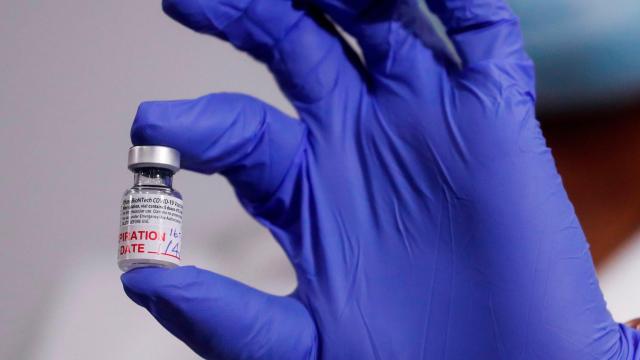Federal health officials are expected to sanction COVID-19 boosters for most Americans this week — a decision that’s become well-supported by the science. While the original shots still provide plenty of protection, booster doses are clearly restoring or even surpassing the high levels of effectiveness seen against infection and transmission that the best vaccines provided initially. And there’s reason to think that this boost in immunity may last for a good while.
Technically, only select groups of vaccinated Americans are currently recommended by the federal government to receive a booster. These include people over 65, people with certain medical conditions that increase the risk of severe illness, and those deemed to be at high risk of exposure to the virus, such as health care workers.
But some localities, most notably New York City, have already abandoned the loosely defined restrictions and are now allowing everyone to get a booster. Last week, the joint vaccine makers Pfizer and BioNTech announced they would ask the Food and Drug Administration to authorise their boosters for all vaccinated Americans at least six months after their second shots — a request that Moderna made themselves this week. The FDA is expected to decide in favour of boosters for all by end of Thursday, while expert advisors with the Centres for Disease Control and Prevention are scheduled to meet Friday to discuss the issue and likely give their blessing as well.
Just in terms of logistics alone, universal boosters make sense. At least some vaccine providers and seekers are experiencing confusion over conflicting rules for booster eligibility, which may help explain the limited rates of uptake so far. And while there remains a tragic and avoidable disconnect between rich and poor nations in the availability of vaccines, not using the boosters in stock now will only lead to those doses going to waste, not improve the situation elsewhere.
Most importantly, there’s also a very clear public health rationale for boosting everyone.
The majority of research continues to suggest that two doses of an mRNA vaccine provide high levels of protection against hospitalisation and death for the average person (this protection may be lessened somewhat for the single-shot J&J vaccine). It’s thought that vaccinated older people, whose immune systems are generally weaker, are more likely to experience a waning loss of protection against these severe outcomes, which was the initial justification from many experts for only approving boosters for high-risk individuals.
But as great as not being hospitalized or dying is, even a “mild” case of COVID-19 can cause plenty of acute misery, lingering symptoms like the permanent loss of smell, and the further spread of the disease. And the latest studies are very clear that a booster can prevent a lot of that misery.
For instance, in the trial data submitted by Pfizer, involving 10,000 people, those given boosters were found to be 95.6% less likely to experience COVID-19 symptoms, relative to vaccinated people who weren’t boosted. This data was collected during the era of the Delta variant, the most transmissible and widespread form of the coronavirus to date.
Studies from other countries like the UK and Israel have similarly shown dramatic improvements in protection among the boosted, to levels even higher than was originally seen with the initial shots. And this protection helps others as well, since rates of onward transmission are further reduced when fewer people get infected (contrary to covid deniers, the risk of transmission is still reduced by the original shots, just not as much as early studies indicated). We have less concrete data on mixing-and-matching boosters, such as J&J recipients getting a mRNA shot, but protection does seem to be boosted to a similarly high degree there as well.
This added boon from boosters may be all the more essential in the face of an uncertain winter. Cases are beginning to rise again across Europe and the U.S., while deaths and hospitalizations here are still relatively high and may soon follow suit. Outbreaks will continue to be fuelled by the unvaccinated, but boosted Americans may substantially help short-circuit transmission.
There’s of course the open question of how long this boost in protection will last, given the waning we’ve already seen within six months’ time; others have questioned why we should accept boosters at all. But plenty of vaccines today rely on boosters months after the original doses to provide optimal protection, including the ones we give to kids. The trajectory of vaccine-provided (and disease-acquired, for that matter) immunity from COVID-19 will have to keep being studied over time. But generally, the strength of our immune systems against a particular germ becomes more robust the more exposures it has to that germ or to the much safer counterpart that we get from a vaccine. And there is some early evidence from Israel that the immunity of boosted individuals, based on antibody data, will hold strong for at least nine to 10 months, if not longer.
Vaccines and boosters alone shouldn’t be the only tool used to contain the pandemic — mask-wearing, rapid tests, effective antivirals, and ventilated buildings are important, too. But boosters for all will surely help prevent or migrate the last big hurrah that COVID-19 may have up its sleeves for the U.S.
